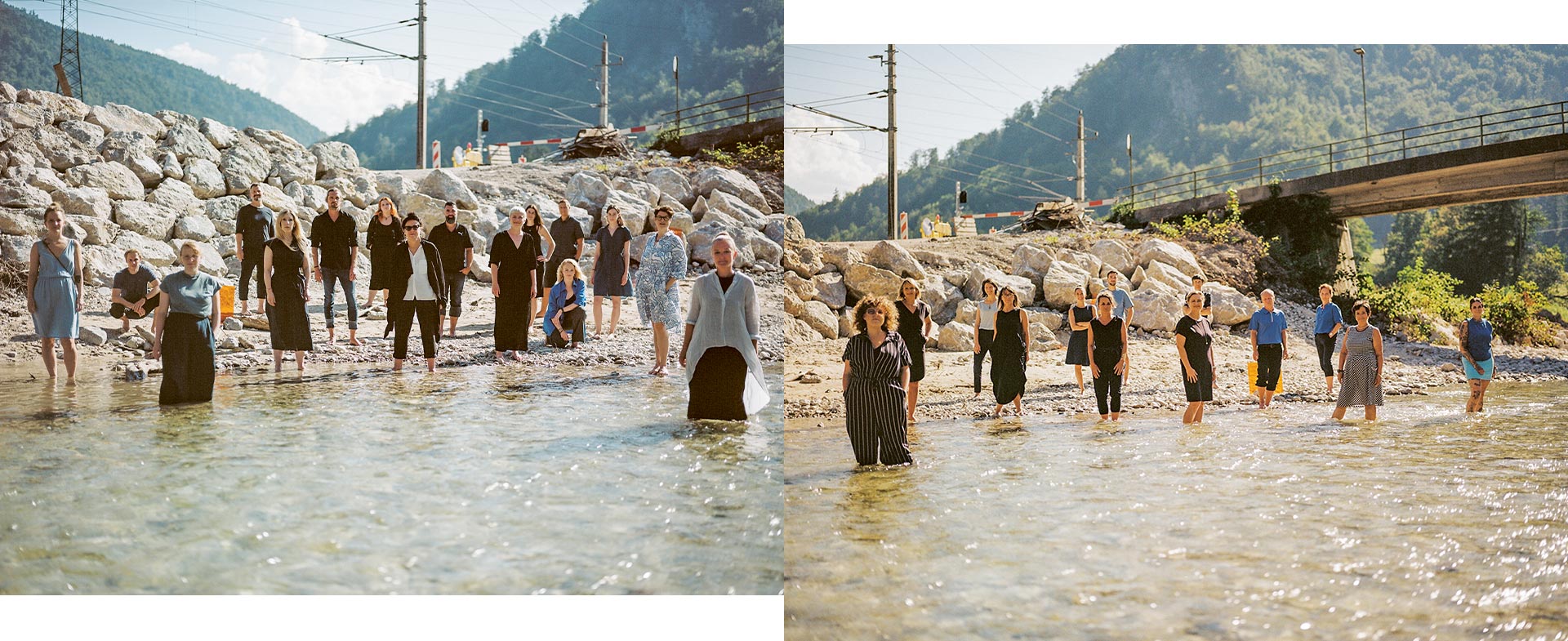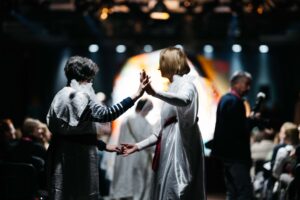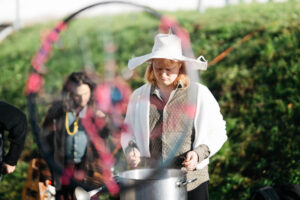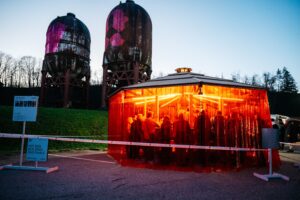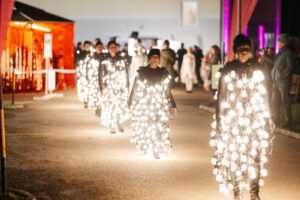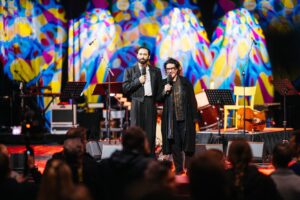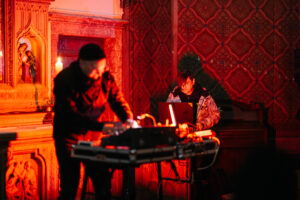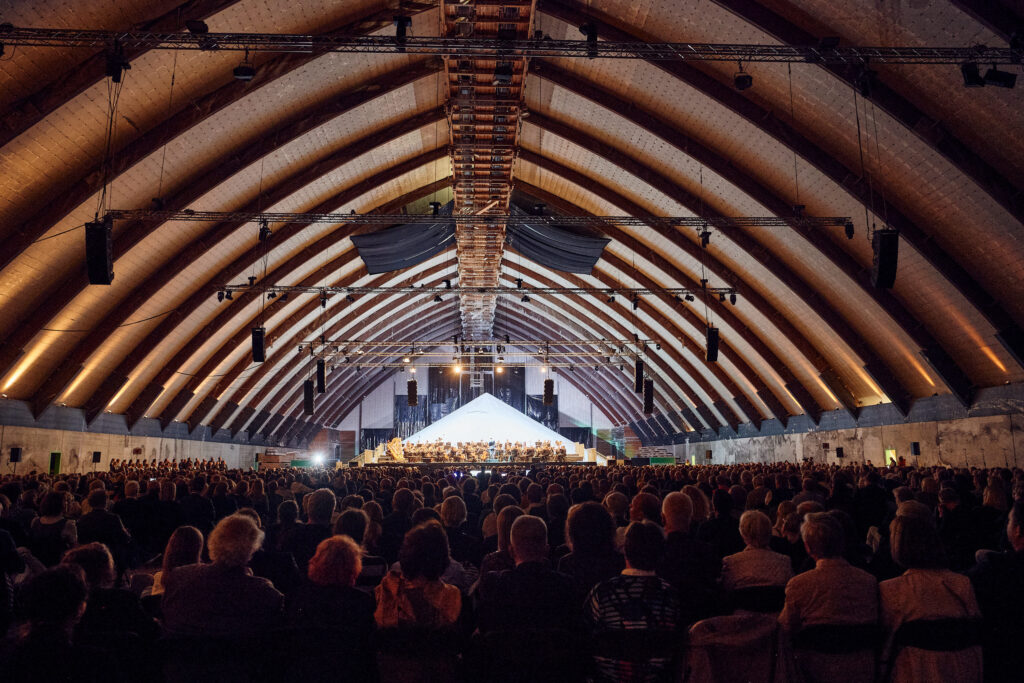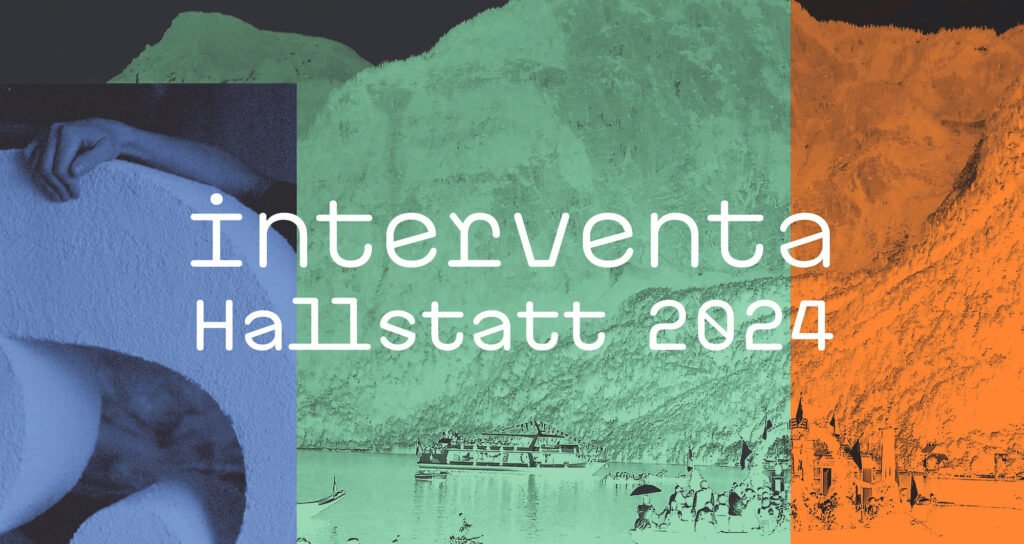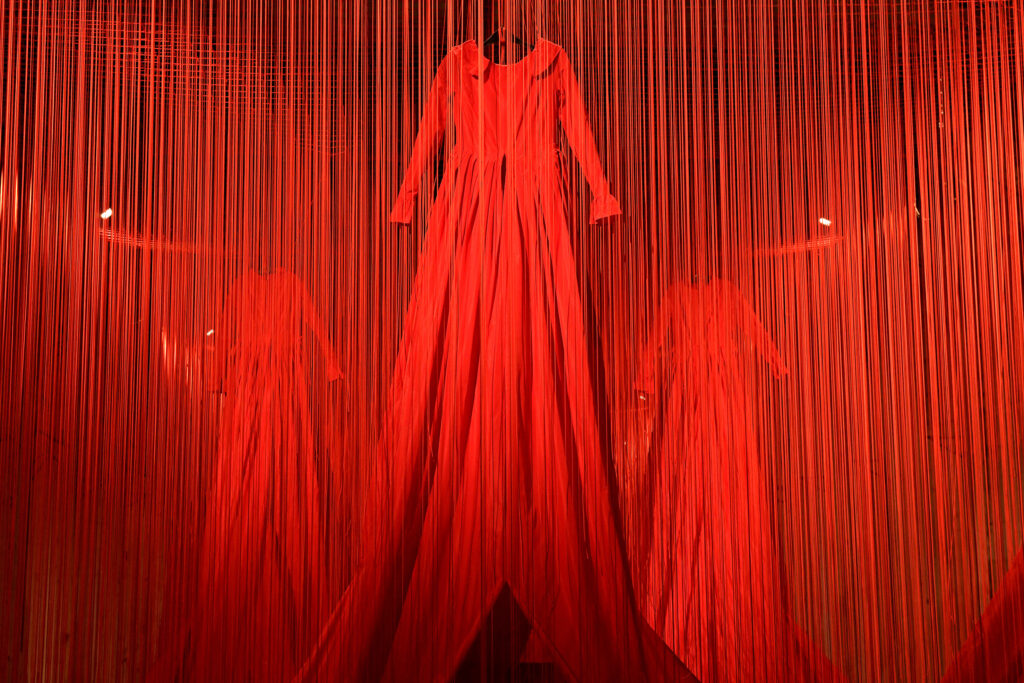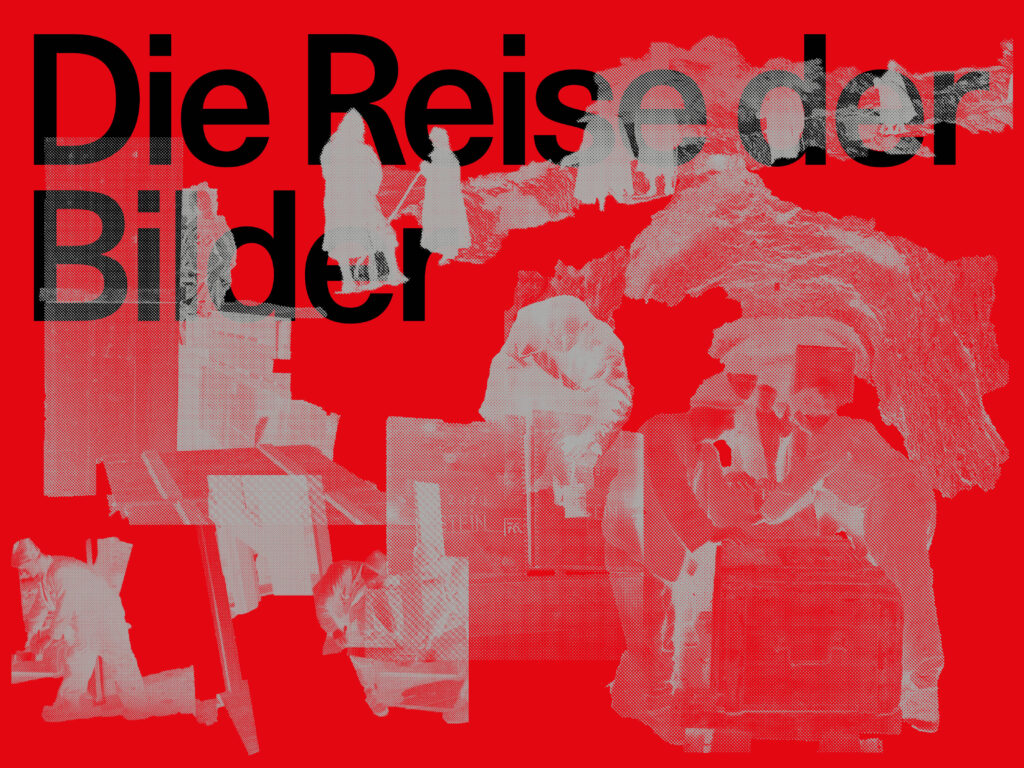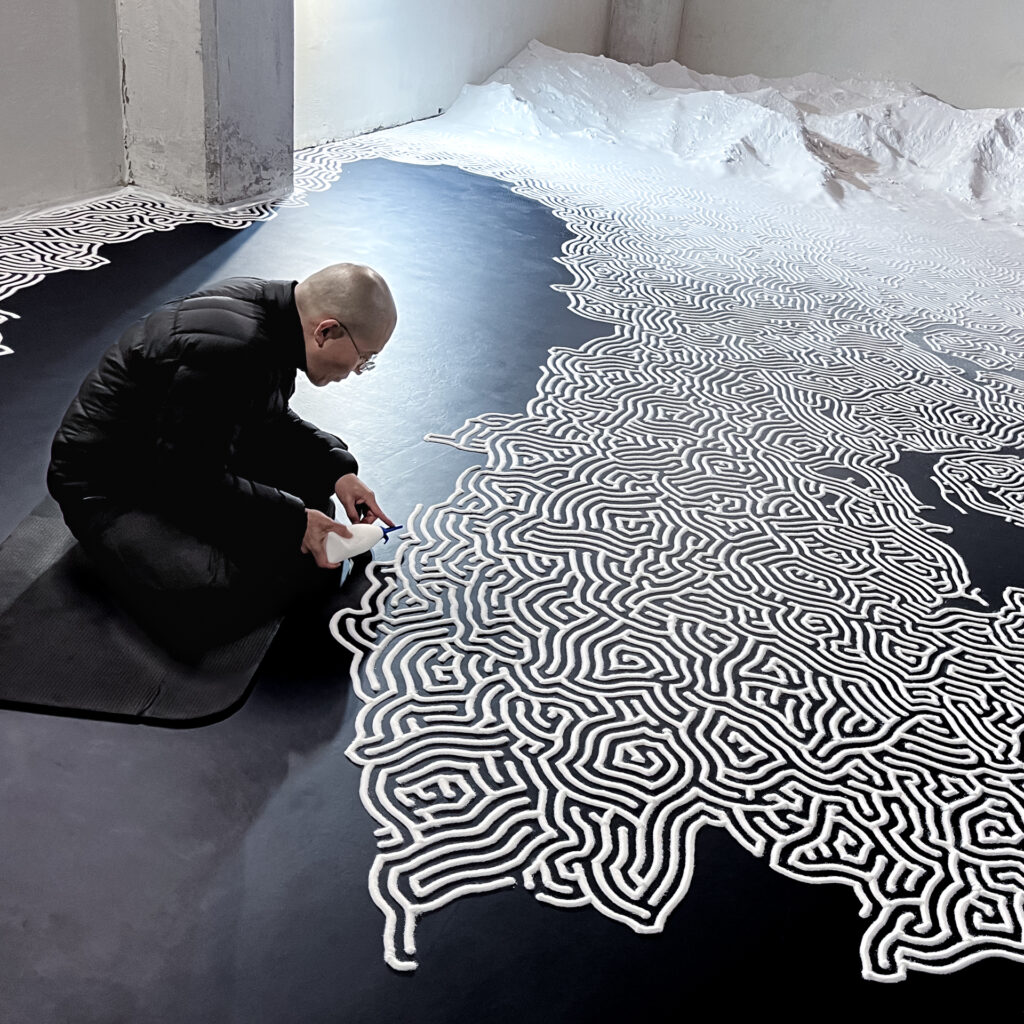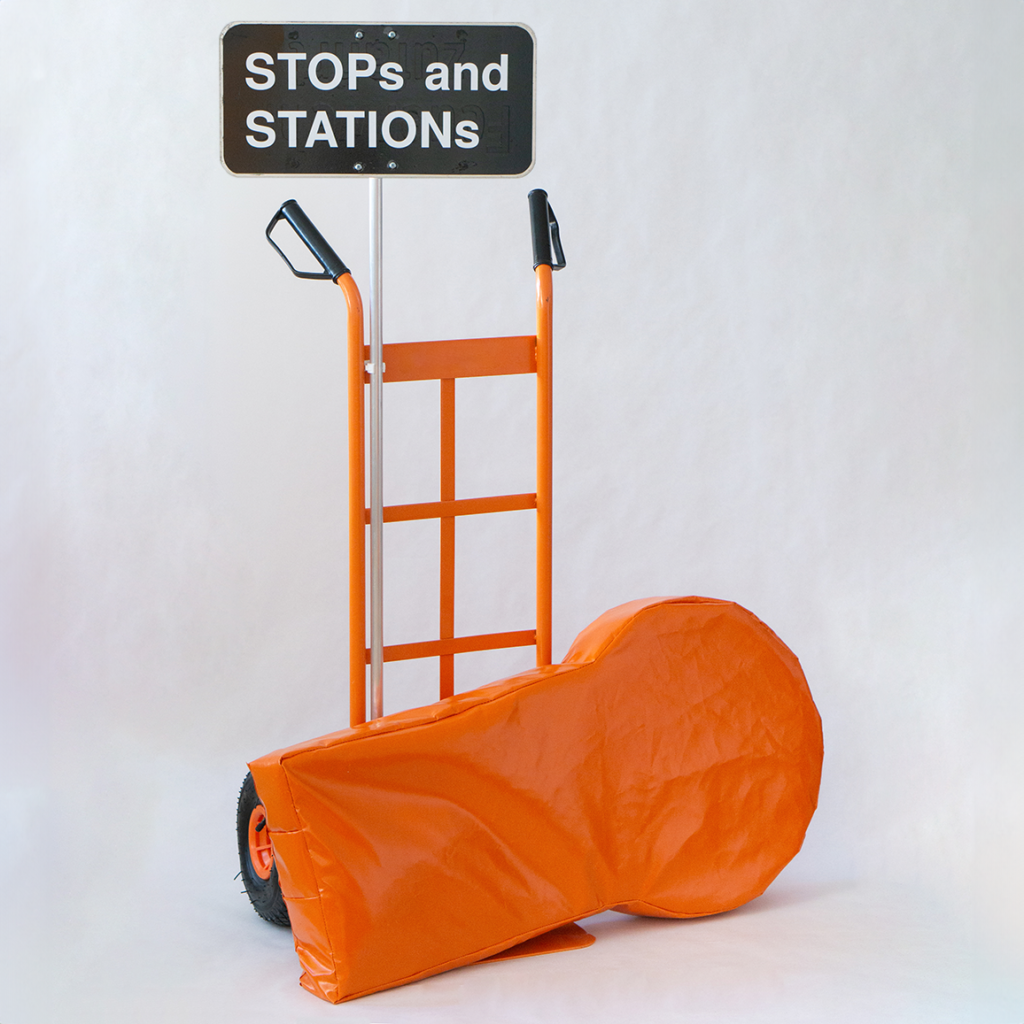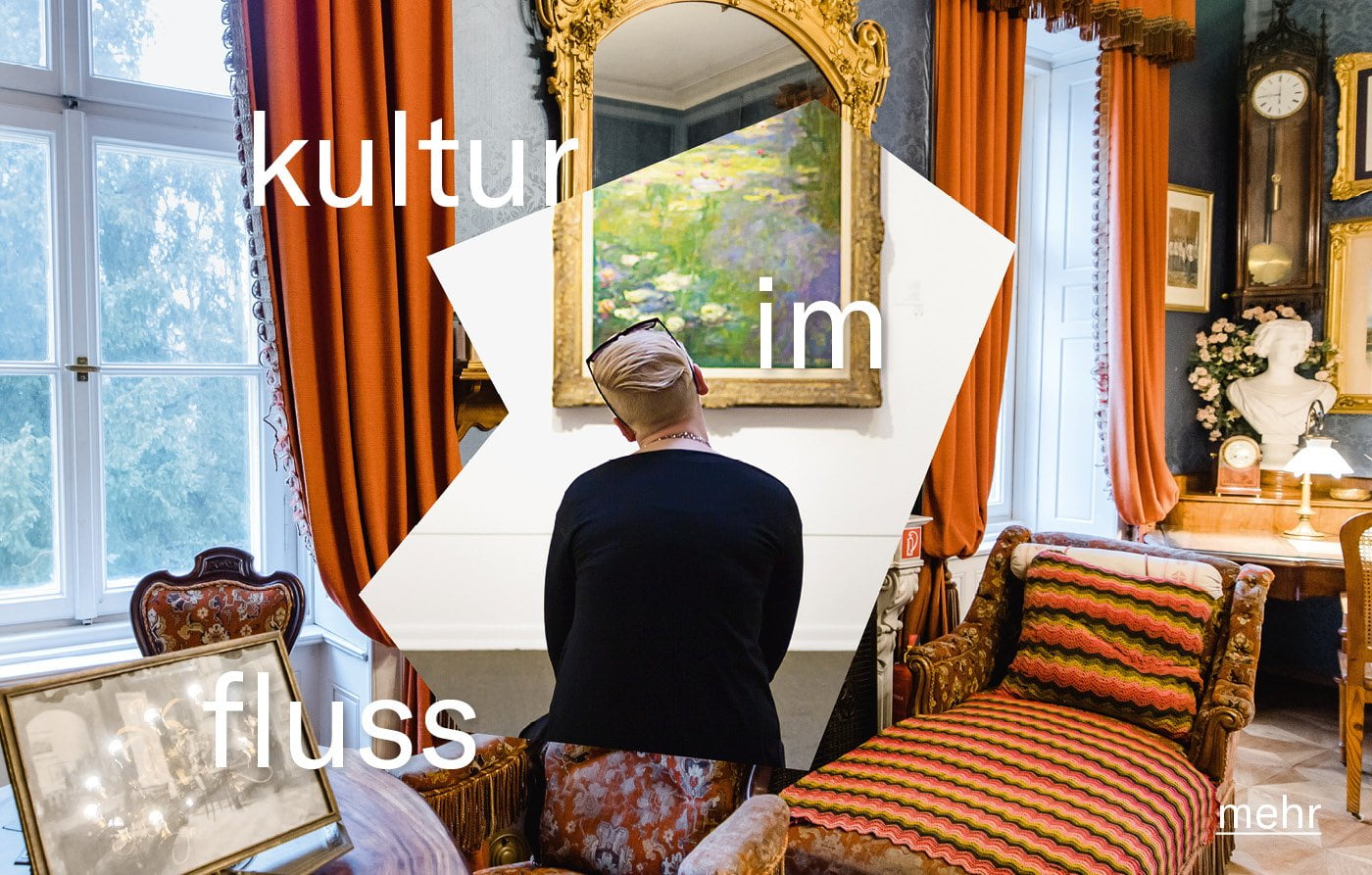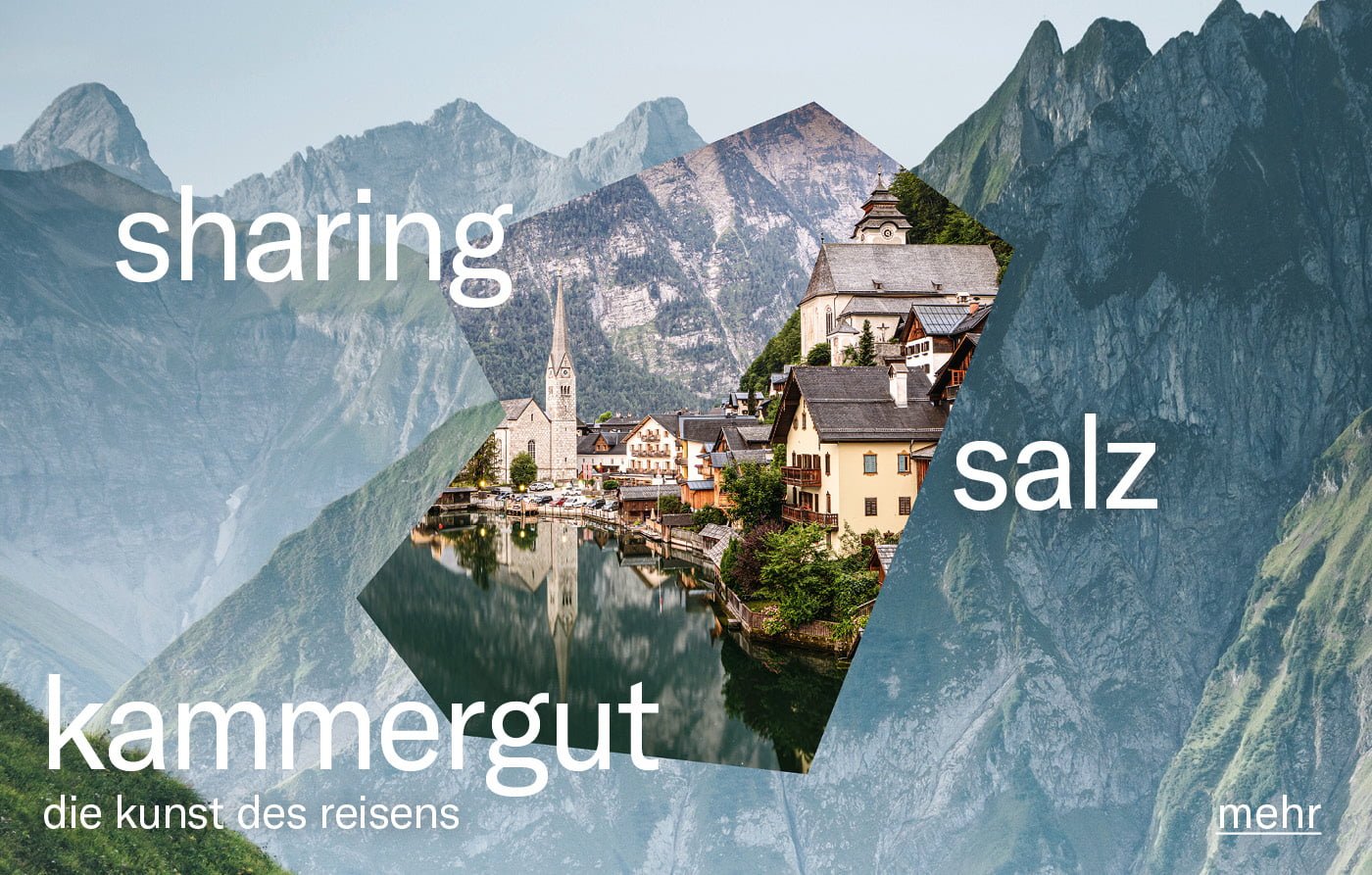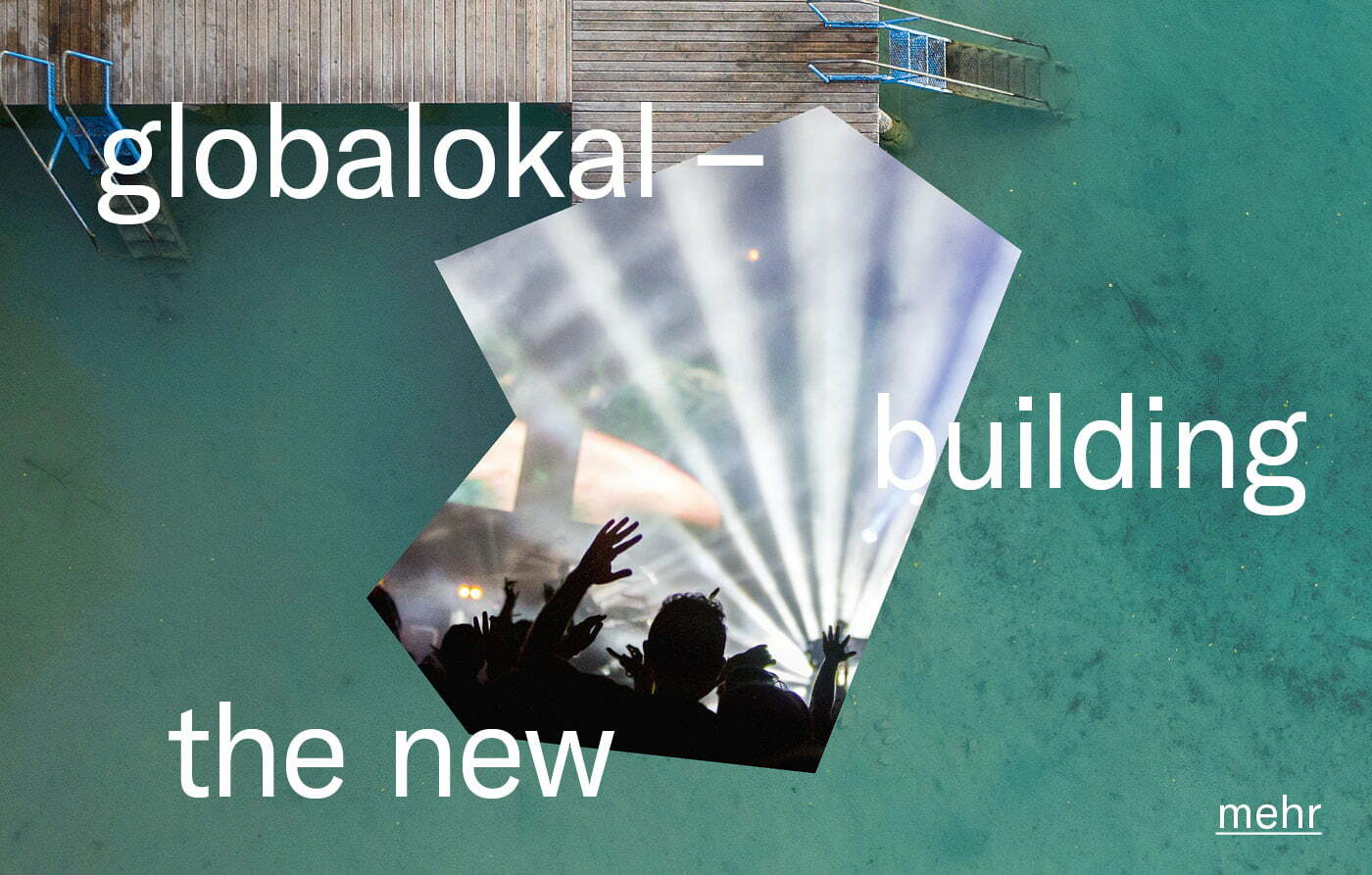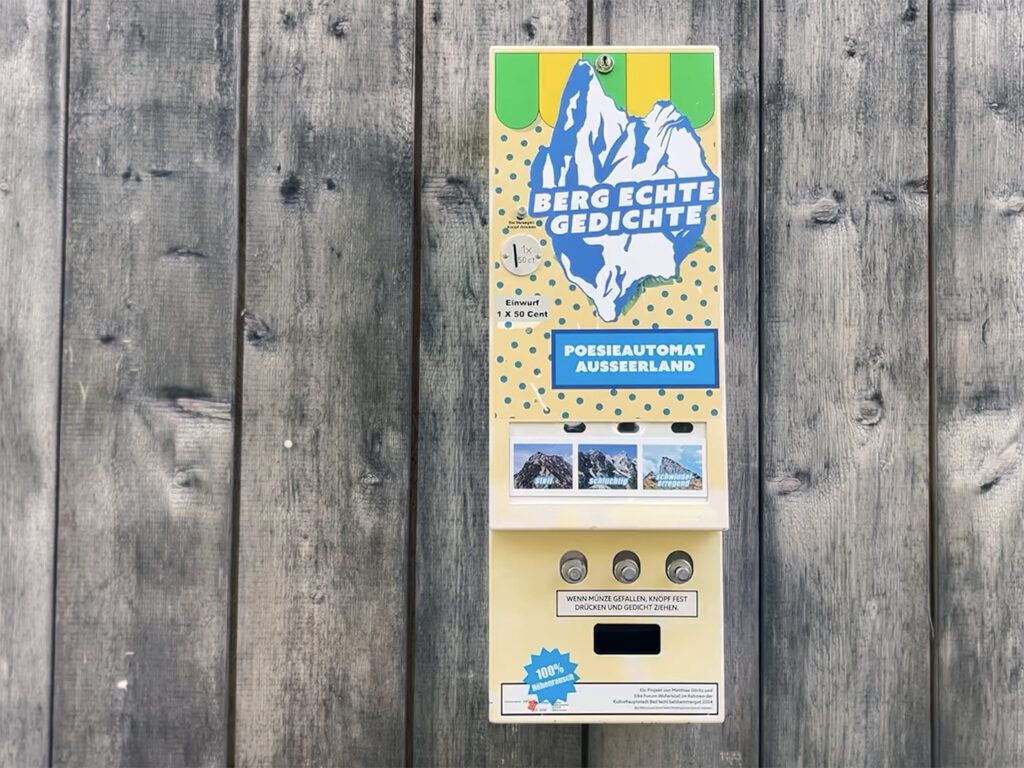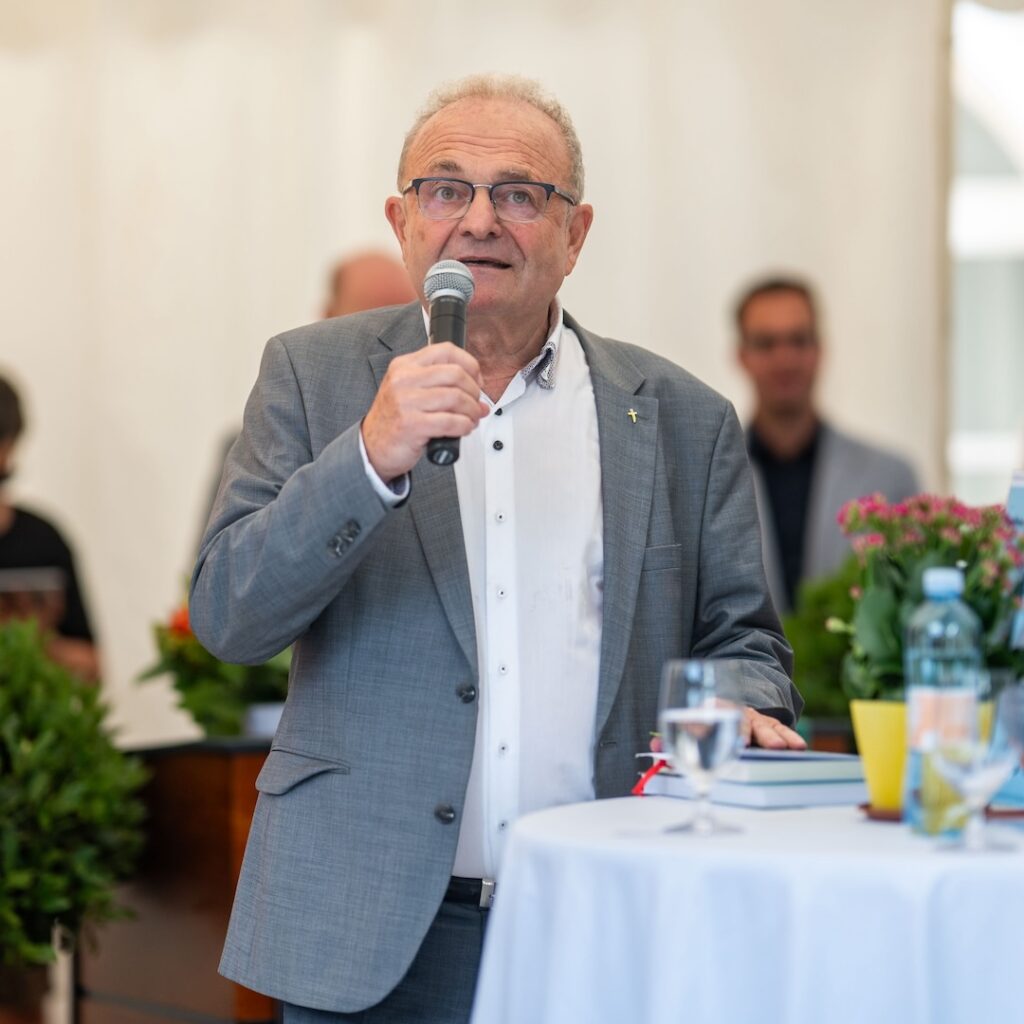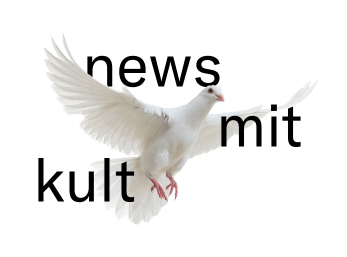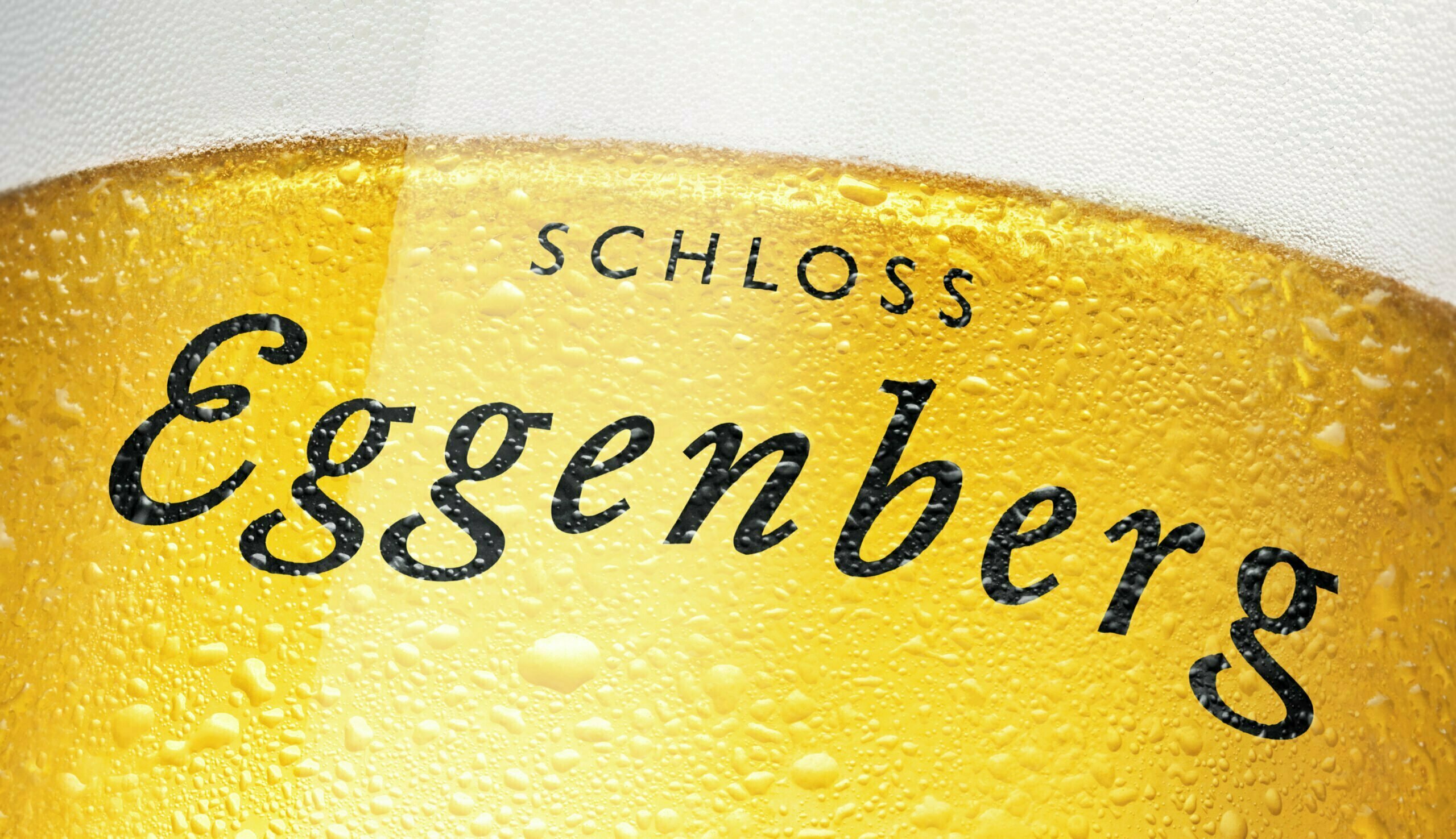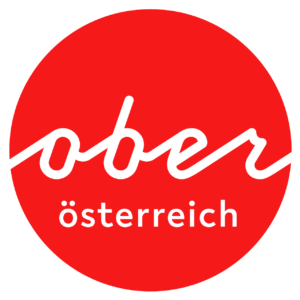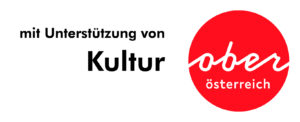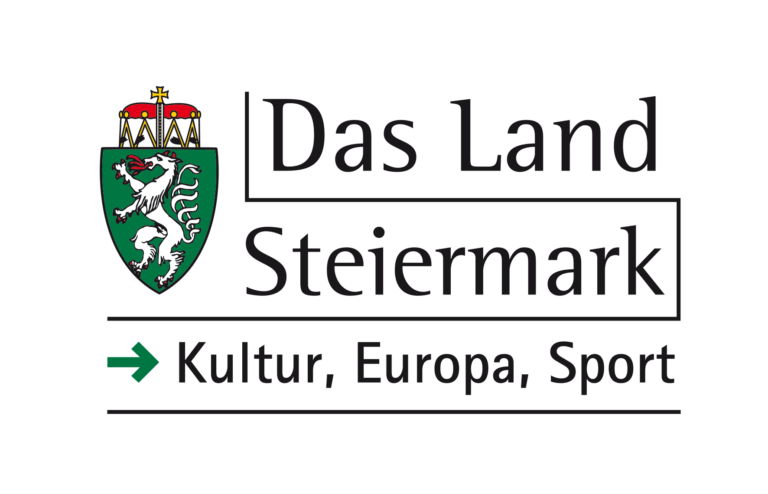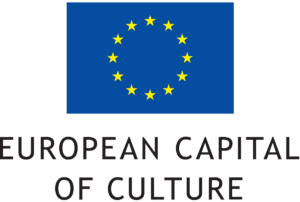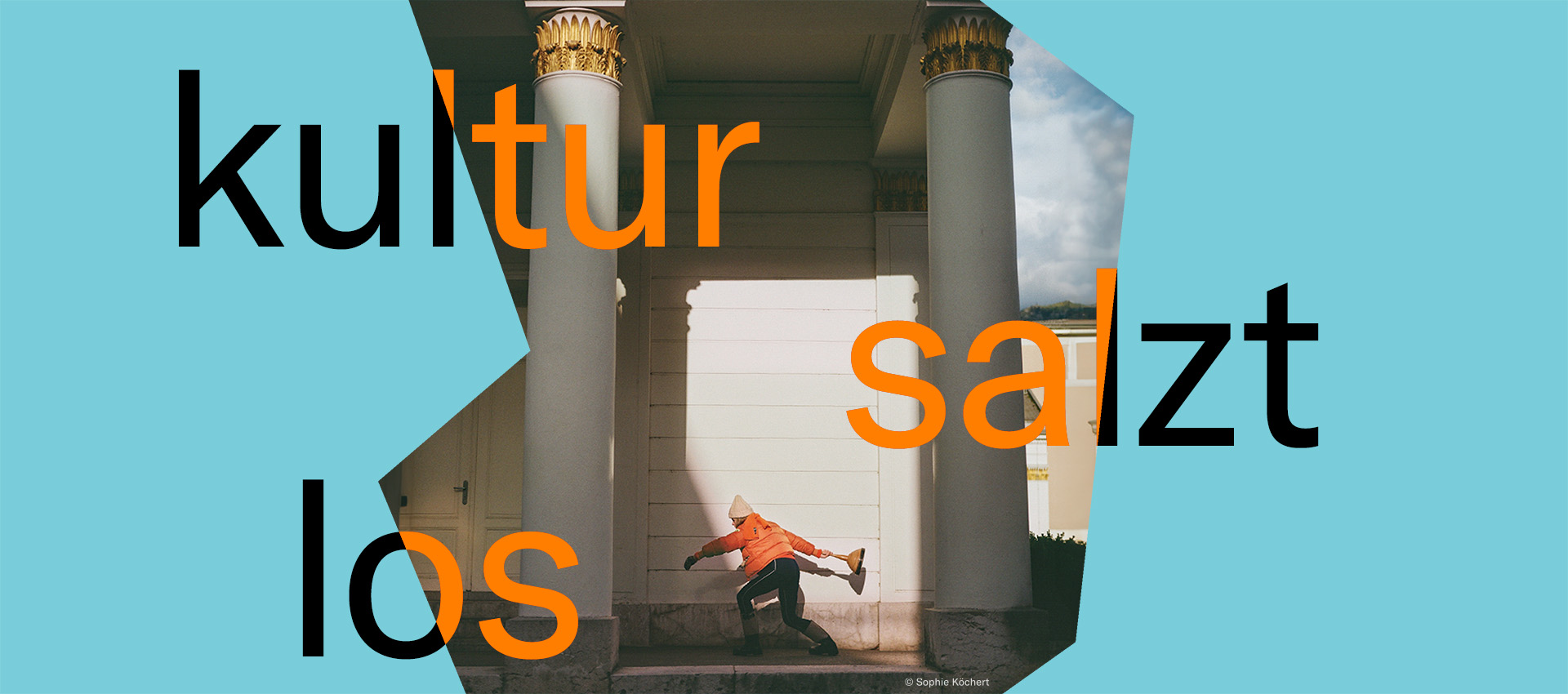
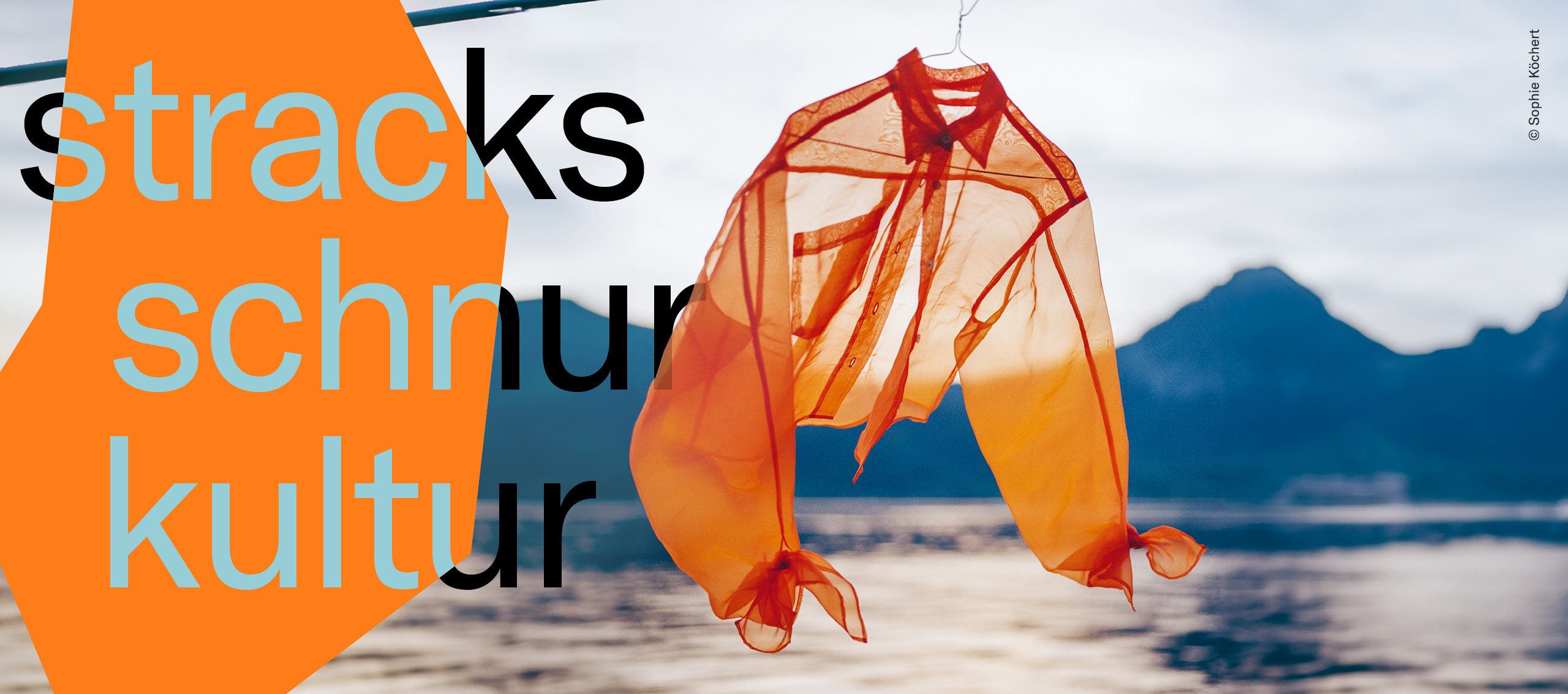
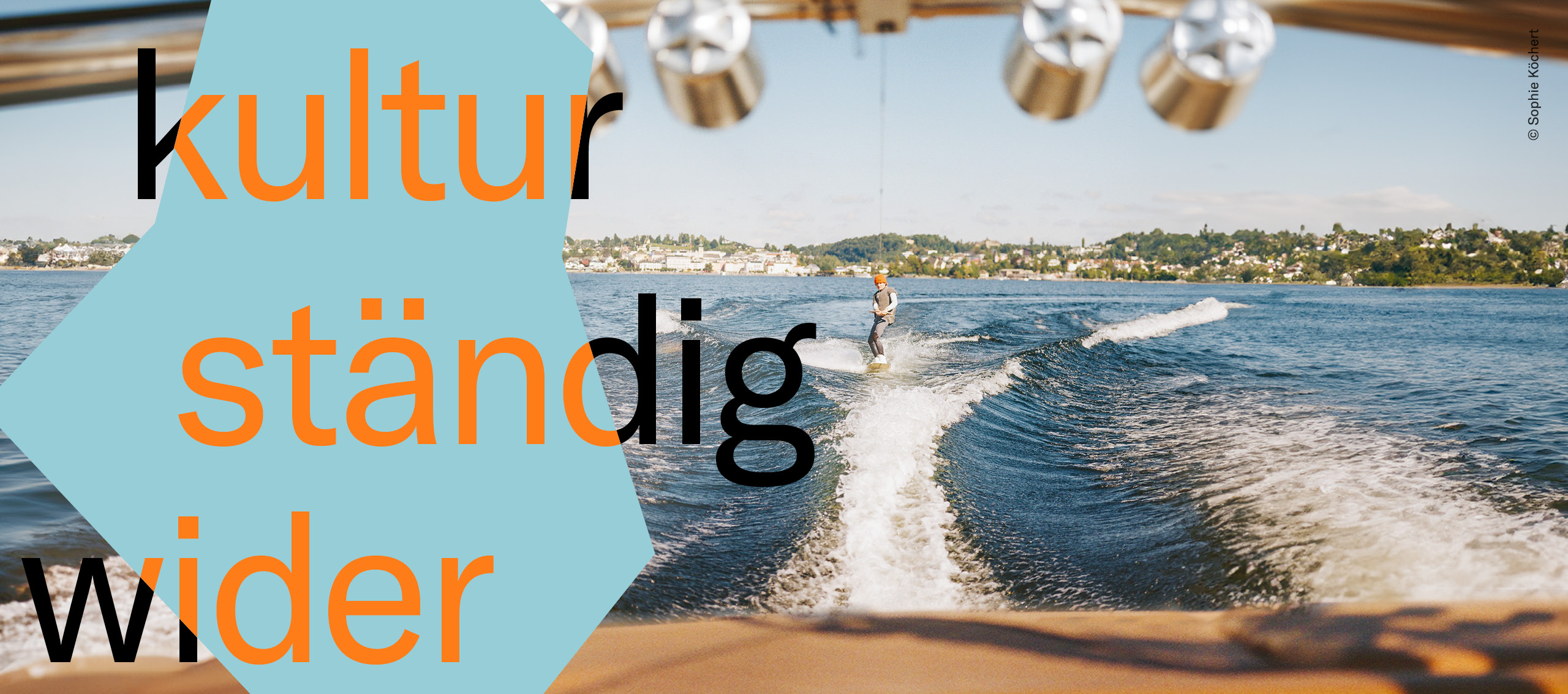
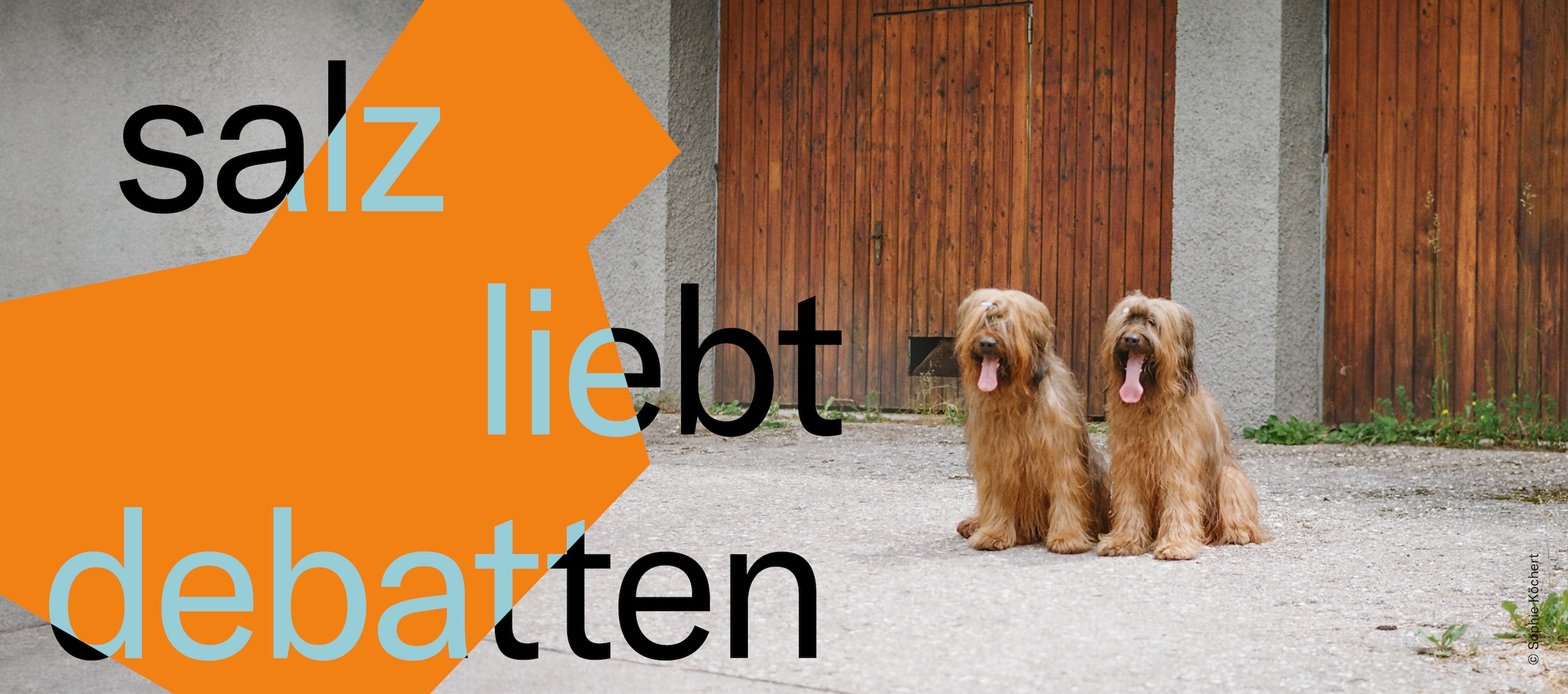
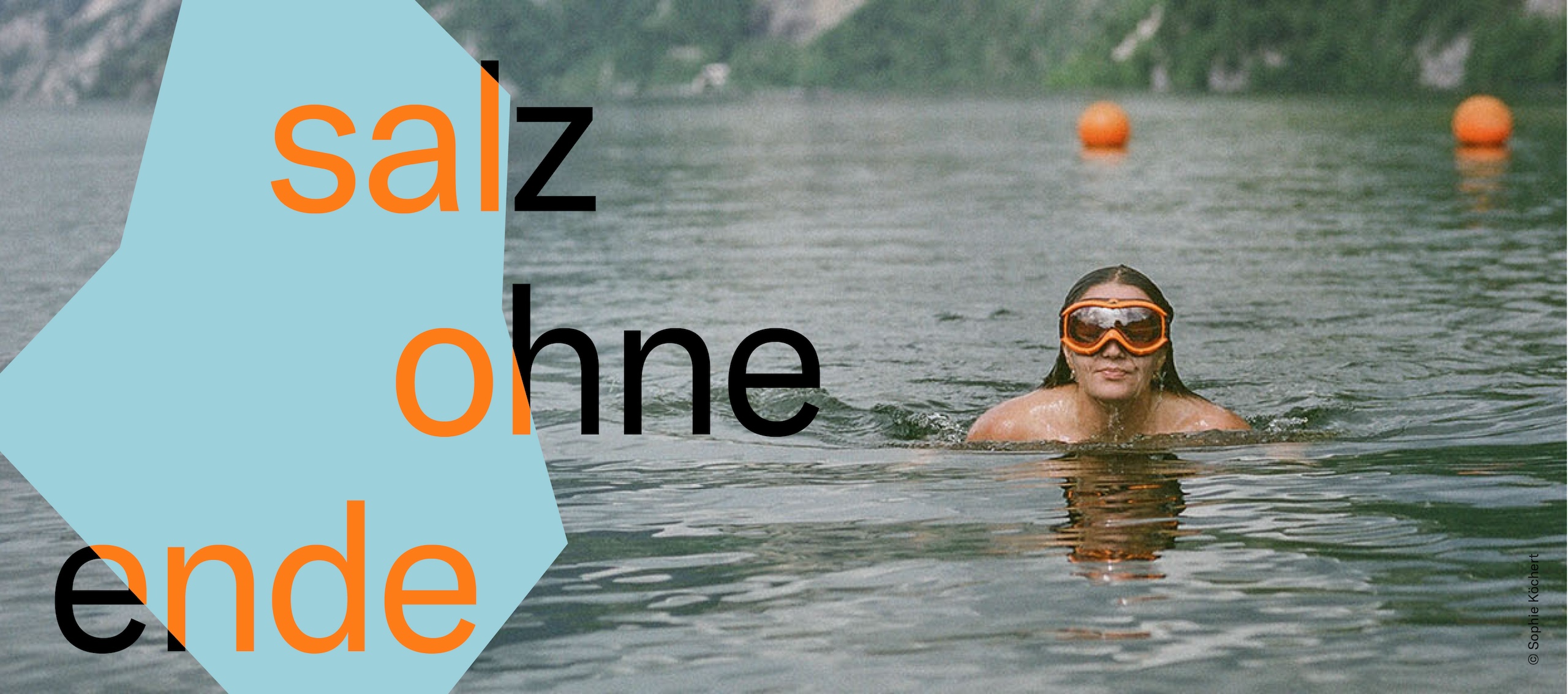
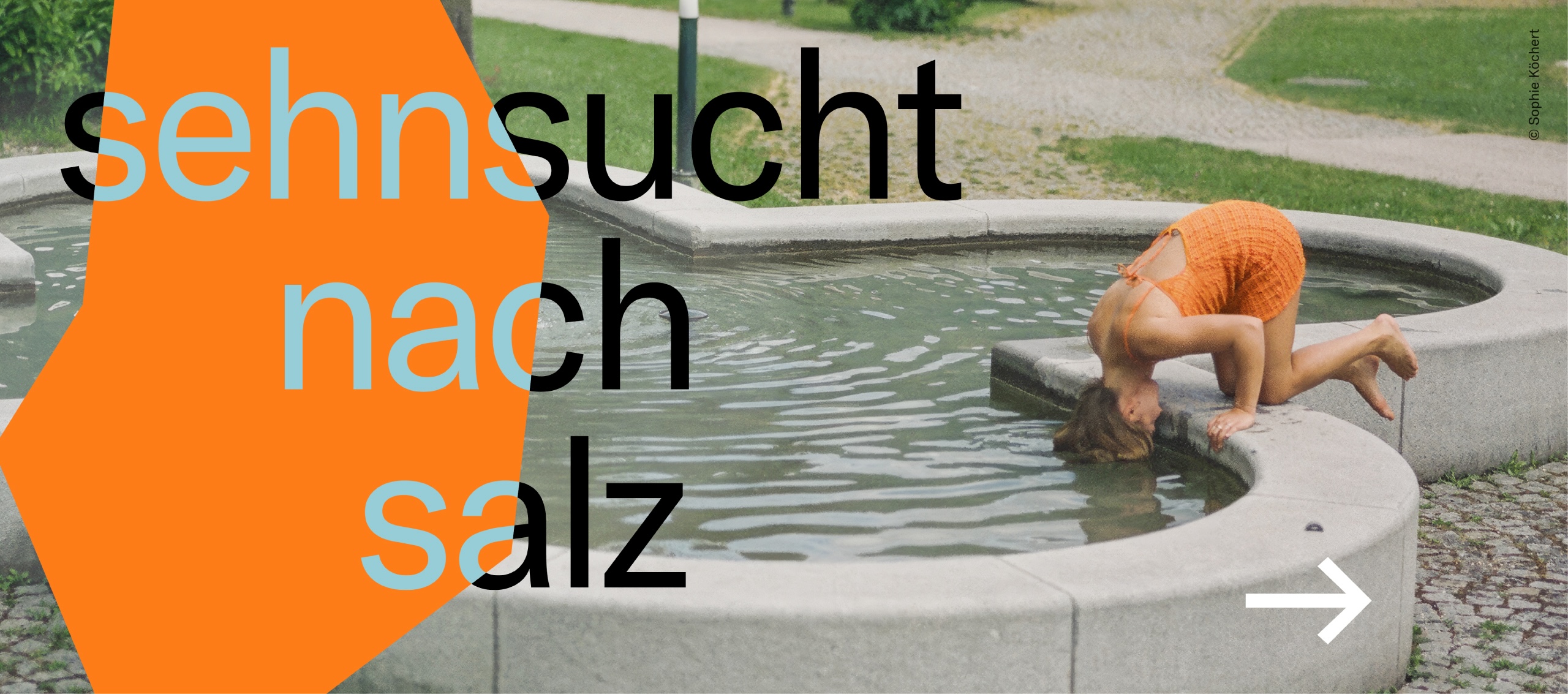
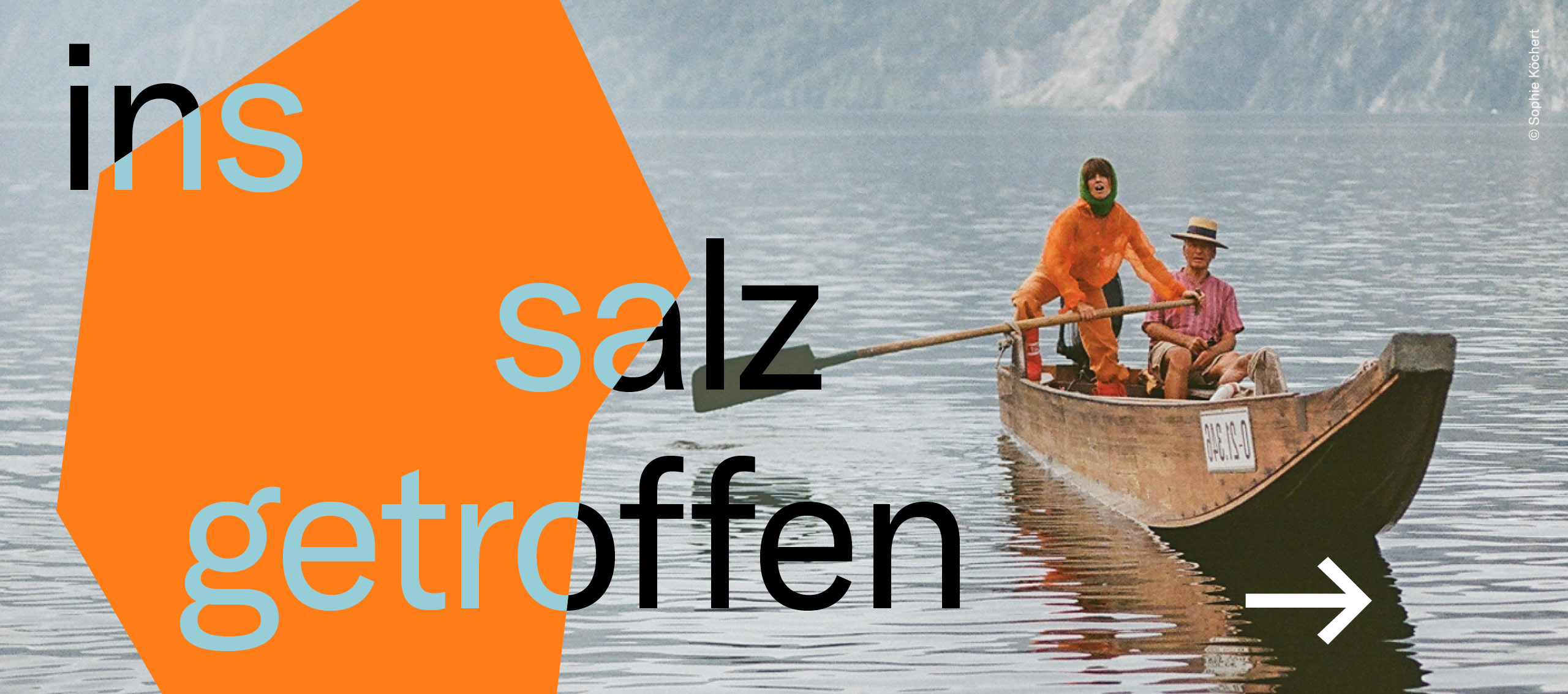
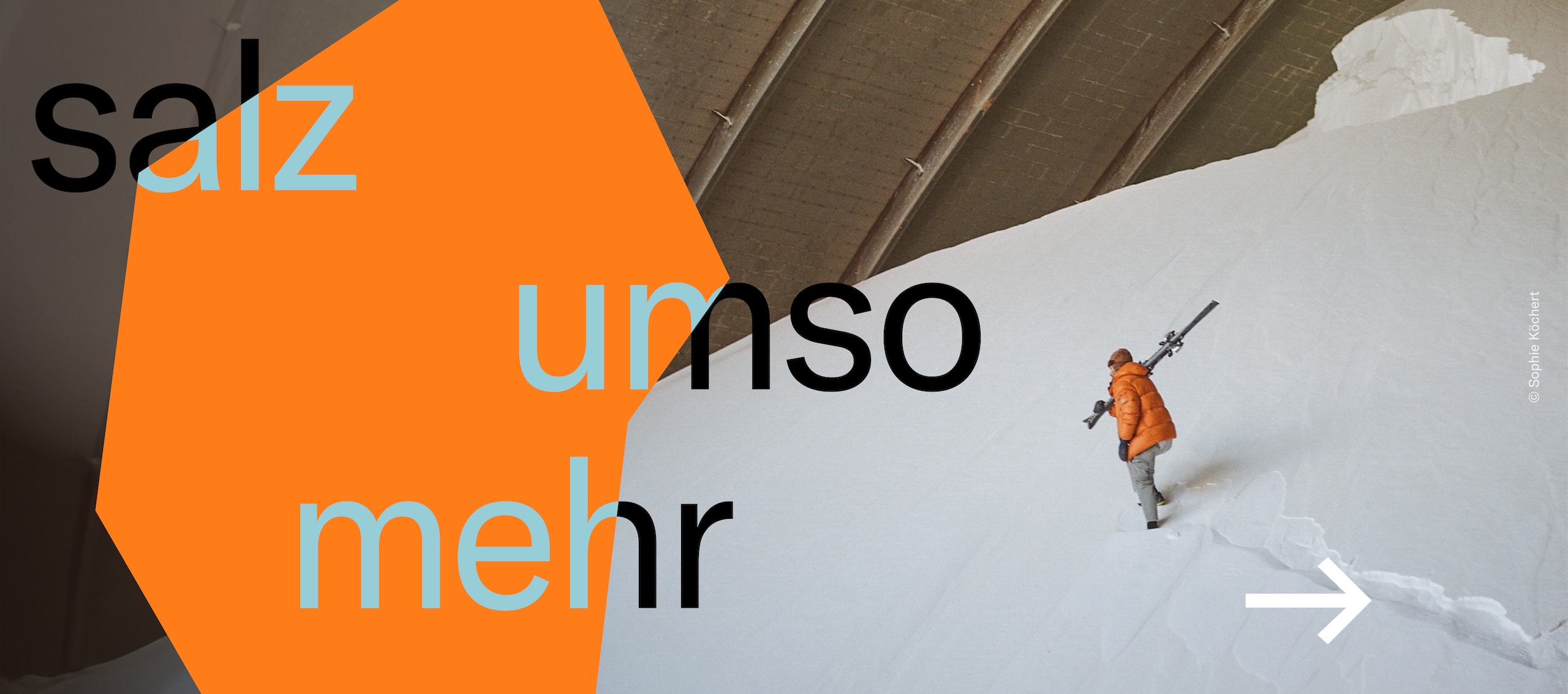
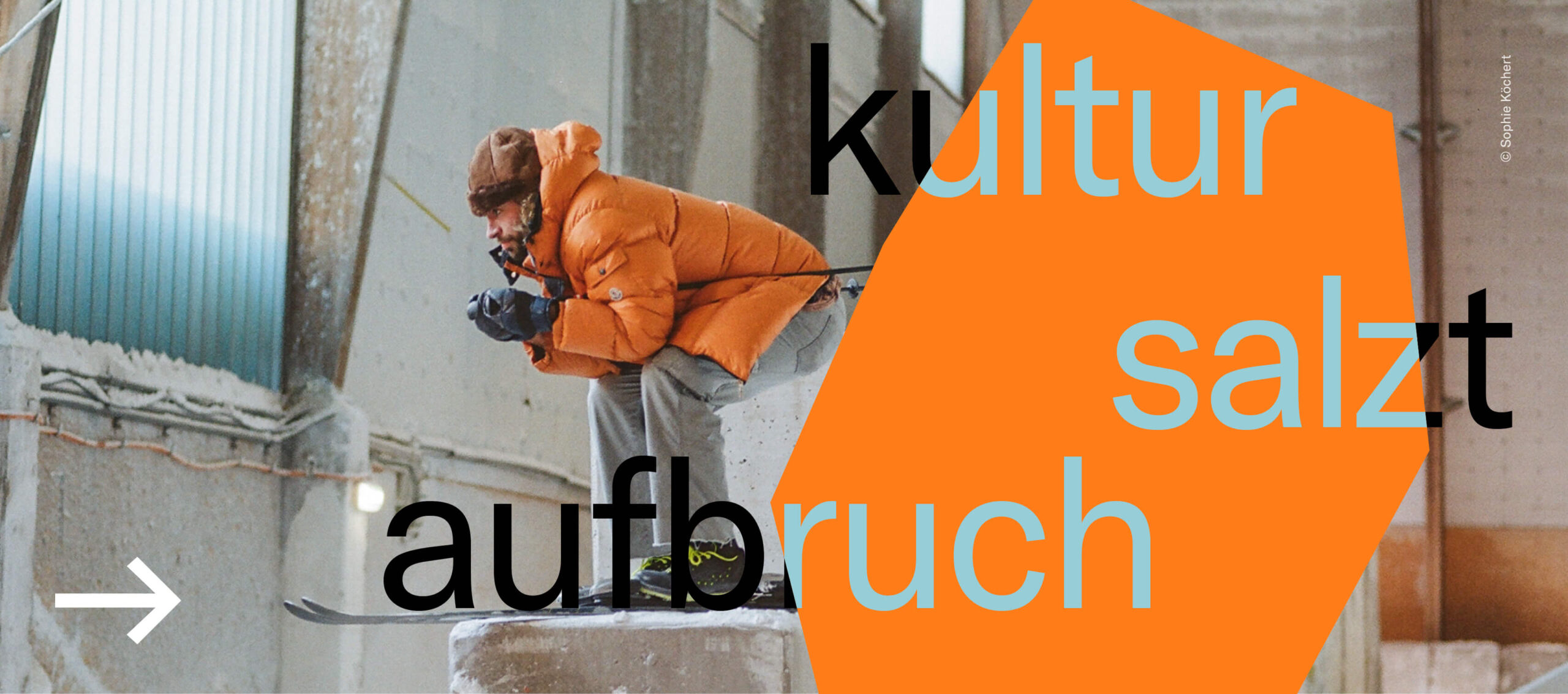


Sale
in Bad Ischl
Wir verkaufen technisches Equipment sowie Bürobedarf und Möbel zu günstigen Preisen.
→ Übersichtsliste
Anzahl, Preise und Fotos auf Anfrage via eMail.
Wann:
Di, 11.3., 18.3., 25.3.2025
Mi, 12.3., 19.3., 26.3.2025
Do, 13.3., 20.3.2025
Jeweils von 10–16 Uhr – bitte um vorherige Anmeldung
Merchandise-Produkte werden weiterhin von der Salzkammergut Touristik GmbH verkauft.
Was lernt das Salzkammergut aus der Kulturhauptstadt Europas?
The Big Green Visions
Good Practices on a Good Life
Im Rahmen des Projekts The Big Green laden wir gemeinsam mit inforelais (Austria), Pro Progressione (Hungary), Marche Theatro (Italy) und Xamk (Finland) zu einer Reihe von inspirierenden Minikonferenzen, Symposien und Key Notes ein. Entdecke, wie wir durch innovative und nachhaltige Ansätze eine grünere Zukunft gestalten können.
Termine, Info & Anmeldung:
→ The Big Green Visions
Kunst ist eine gestaltende Kraft, sie ist kein Privileg für Eliten, nicht ersetzbar und nicht mit Geld aufzuwiegen. Kunst ist die essenzielle Substanz, die für unser Überleben sorgt, eine unabdingbare Investition in die Zukunft und eine elementare Notwendigkeit, an der wir festhalten müssen.
Elisabeth Schweeger
Der ländliche Raum
Ein Zukunftsraum
Wie kann sich der ländliche Raum in Zukunft weiterentwickeln? Wie Traditionen bewahren und trotzdem mit der Moderne Schritt halten? Wie bauen, ohne die Natur zu zerstören? Wie Tourismus effizient gestalten, ohne das eigene Leben einzuschränken? Wie mit der Welt vernetzt sein und trotzdem regional leben? Wie Vergangenheit erinnern und Zukunft denken? Wie mit den Mitteln der Kunst Ausgrenzung vermeiden und der Jugend Perspektiven aufzeigen?
Das waren die Fragen, die 2024 in der Region Bad Ischl Salzkammergut im Fokus standen. Mit ihr war zum ersten Mal keine Stadt, sondern ein alpiner Raum Kulturhauptstadt Europas. 23 Gemeinden in dieser einzigartigen Landschaft wagten es, gemeinsam Kulturhauptstadtregion zu sein und haben die Chance genutzt, sich zu vernetzen, in engen Austausch zu treten, um mit Kunst, künstlerischen Interventionen und kulturellen Anregungen sich selbst und die eigene Geschichte zu reflektieren, einen anderen Blick auf sich zuzulassen, sich mit neuen Gedanken, Einflüssen, Erfahrungen und Visionen zu konfrontieren, einander besser zu verstehen und im europäischen und internationalen Kontext differenzierter zu positionieren, der neuen geopolitischen Situation entsprechend.
Das Kulturhauptstadtjahr 2024 wurde als Katalysator für tiefgreifende nachhaltige Veränderungen konzipiert. Dabei spielten Kunst und Kultur eine zentrale Rolle als Motor für erfolgreiche zivilgesellschaftliche, soziale und wirtschaftliche Entwicklungen. Das Salzkammergut hat eindrucksvoll gezeigt, dass eine Region mit starkem Gemeinschaftsgeist und kulturellem Reichtum nicht nur kurzfristig Begeisterung hervorrufen kann, sondern auch langfristig eine nachhaltige Dynamik entfaltet. Getragen wurde das gesamte Projekte von rund 2.800 Projektbeteiligten und Künstler*innen aus der Region und 73 Ländern.
Es wurden auf Initiative der Kulturhauptstadt Möglichkeitsräume aufgemacht wie das Sudhaus, das zukünftig als Kulturhaus revitalisiert wird, das Lehár Theater mit der Generalsanierung ab 2025 und Wiedereröffnung 2027 wurde auf Schiene gebracht, das Museum der Stadt Bad Ischl neugestaltet, das Schriftmuseum Bartlhaus, das Literaturmuseum Altaussee, Leerstände mit Kunst in ÖBB-Bahnhöfen bespielt und das KunstQuartier Gmunden als neuer Anlaufpunkt für zeitgenössische Kunst ins Leben gerufen. Viele Projekte im Bereich Baukultur und Handwerk wie interventa Hallstatt, Zimmer mit Aussicht oder SCALA Salzkammergut Craft Art Lab werden auch in Zukunft die Salzkammergutregion mit neuen Visionen beleben und dazu beitragen, sie international noch stärker zu positionieren. Das Team der Kulturhauptstadt hat 2024 tatkräftig die Projektträger*innen beraten und unterstützt und damit die Projekte auch zum Erfolg geführt. Sie trugen zur Professionalisierung der Kulturarbeit in der Region bei – die erworbenen Erkenntnisse bleiben der Region und der Kulturszene erhalten.
Mit der Gründung der zwei Nachfolgeorganisationen Aufbruch, Salzkammergut! in Oberösterreich und dem Kulturbüro Ausseerland Salzkammergut in der Steiermark, die zukünftig als Anlaufstellen und Drehscheiben fungieren, wird die langfristige kulturelle Entwicklung des Salzkammerguts weiter gesichert.
Zentrales Ziel ist es, den Erfahrungsschatz der Kulturhauptstadtbeteiligten – von Künstler*innen über Projektträger*innen bis hin zu Besucher*innen – wirksam weiterzutragen. Die gesammelten Eindrücke bilden die Grundlage für die Standortbestimmung der regionalen Kultur. Damit soll sich das Salzkammergut dauerhaft als offener, kreativer Zukunftsraum positionieren, in dem Menschen innovative Formen des zeitgenössischen Landlebens erproben. Ein Zukunftsraum – ein Modell für Europa!
Elisabeth Schweeger
Künstlerische Geschäftsführerin
der Kulturhauptstadt Europas Bad Ischl Salzkammergut 2024
Aufbruch, Salzkammergut
Model region for rural Europe
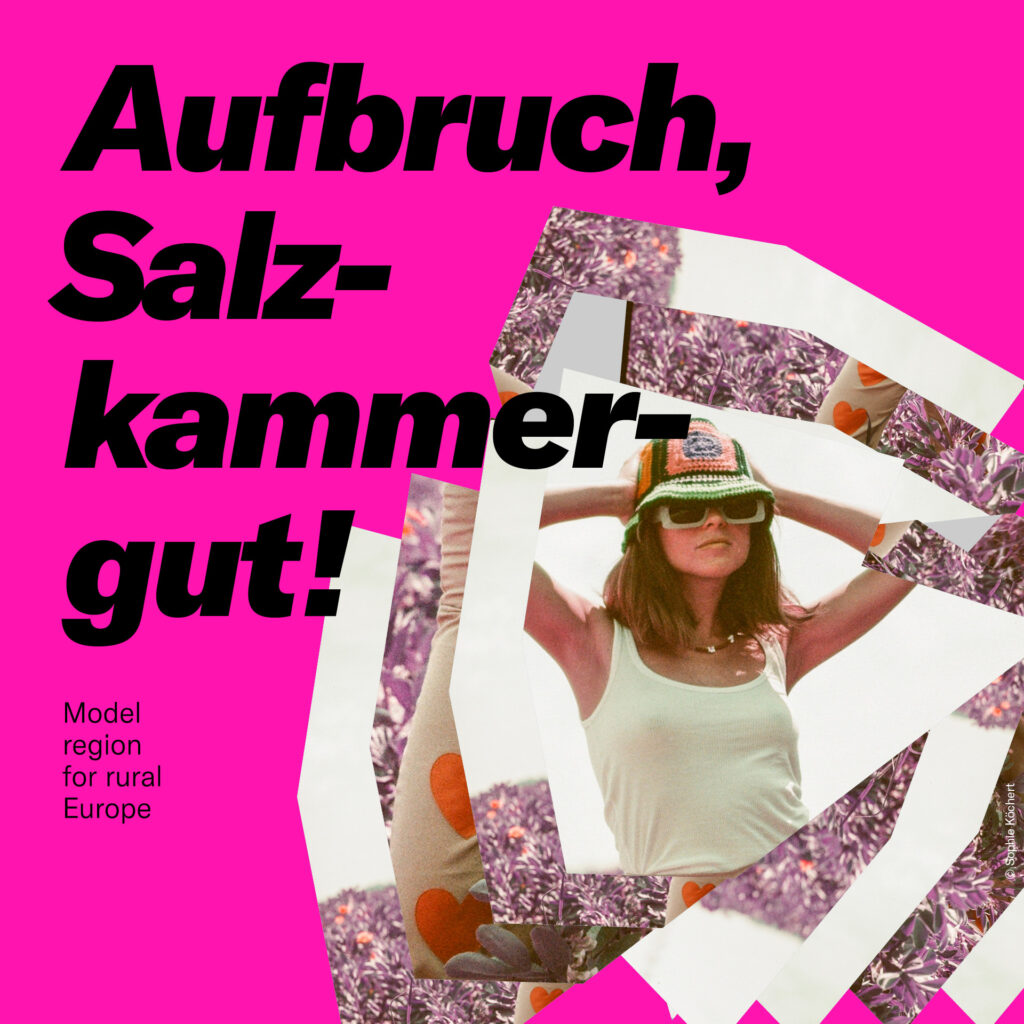
Kulturbüro Ausseerland Salzkammergut
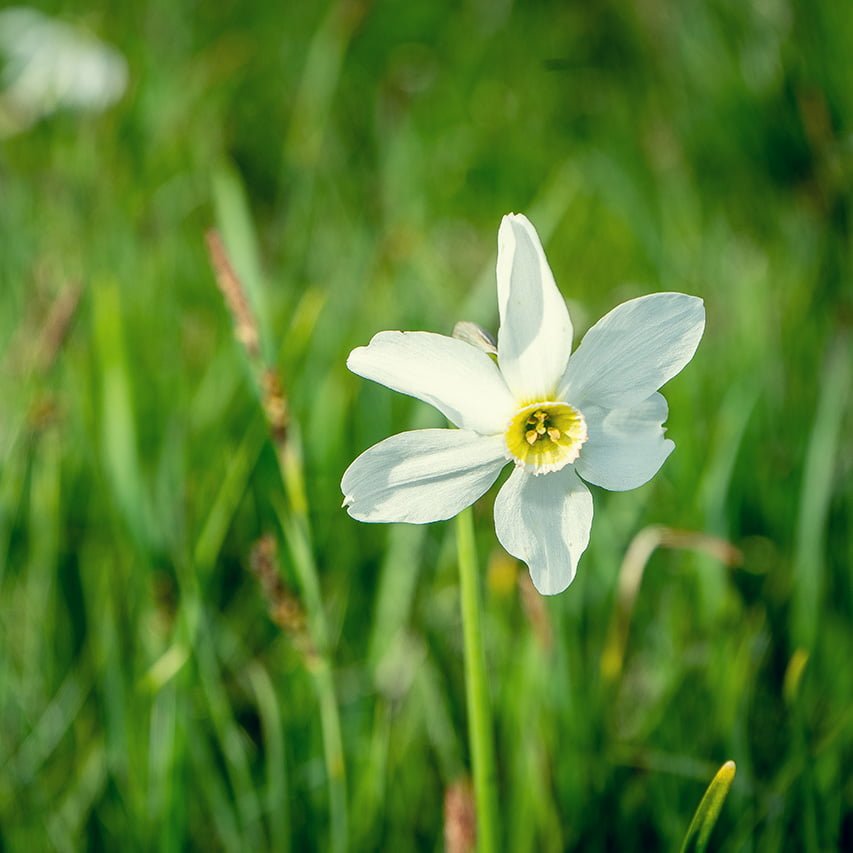
Aktuelles Programm
Highlights
Programmlinien
In den Medien!
Beiträge zur Kulturhauptstadt in Radio, TV und Zeitung

Journal
Meinungen und Haltungen zu Themen, die die Kulturhauptstadt betreffen.

Ö1 und die
Kulturhauptstadt
Europas Bad Ischl
Salzkammergut 2024
Mit der Ö1 Wanderbühne ins europäische Kulturhauptstadtjahr im Salzkammergut: Programm an verschiedensten Orten während des ganzen Jahres; Eröffnung am 20.01.2024 in der Trinkhalle in Bad Ischl mit neuer Volksmusik.
Weitere Informationen, auch zum Ö1-Sendeprogramm mit dem Schwerpunkt Kulturhauptstadt, finden Sie unter:
Ö1 und die Kulturhauptstadt
Europas Bad Ischl
Salzkammergut 2024
Mit der Ö1 Wanderbühne ins europäische
Kulturhauptstadtjahr im Salzkammergut: Programm an verschiedensten Orten während des ganzen Jahres.
Weitere Informationen, auch zum Ö1-Sendeprogramm
mit dem Schwerpunkt Kulturhauptstadt, finden Sie unter:
Journal
